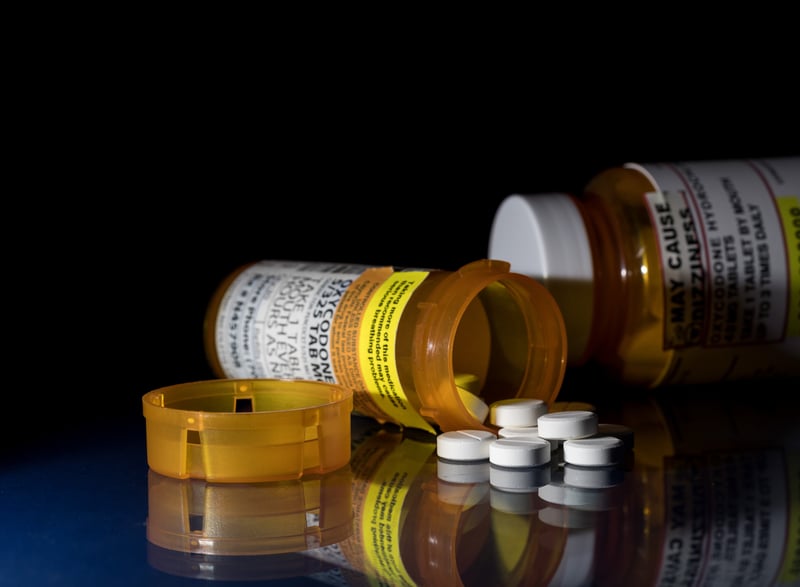Get Healthy!

- Posted August 15, 2023
Two-Thirds of Americans Say Their Lives Have Been Affected by Addiction: Poll
Millions of Americans are addicted to drugs or alcohol, and millions more struggle with an addicted family member or friend, a new poll finds.
Two-thirds of those surveyed said either they or a family member have been addicted to alcohol or drugs, been homeless because of an addiction, or overdosed or died from drug use. Moreover, 19% say they themselves have been addicted to drugs or alcohol, had a drug overdose or were homeless because of an addiction.
"It's pretty surprising to think about when we talk about addiction and issues with drugs and alcohol, we typically talk about them as isolated incidents," said Ashley Kirzinger, director of survey methodology at KFF (formerly known as Kaiser Family Foundation).
"I think what we're seeing in this is that it's not isolated," she said. "It's impacting almost a majority of American families and when we ask about the impact that it's had on them, a large share say that addiction issues have had an impact on their mental health and their family's financial situation. It's pretty surprising to think about how pervasive of a problem it is in the U.S."
It's affecting everyone, regardless of where they live, regardless of their household income, she noted. "There isn't a typical person with addiction problems. It seems like it's affecting families regardless of their race and ethnicity, regardless of their income and regardless of where they live," Kirzinger said.
Addiction has been seen in 42% of people in rural areas and 33% of white adults, she added. Yet, many people aren't getting help. Only 46% of those with addiction in their families say that person got treatment. Among white adults, 51% got treatment, compared with only 35% of Black and Hispanic adults.
Families affected by addiction say it has damaged family relationships (76%) and mental health (70%), while it stresses family finances (57%).
Many families are also worried that their addicted loved one will overdose or unintentionally use the dangerous and potent drug fentanyl.
On the positive side, Kirzinger said more people polled said their doctor (57%) talked to them about the pitfalls of prescription opioids, including the danger of addiction. Doctors (60%) were also more likely to offer alternative medications to manage pain, she said.
Kirzinger also noted that both Democrats and Republicans support addiction treatment centers in their community (90%) or making the drug Narcan (naloxone), which can reverse an opioid overdose, available for free at bars, health clinics and fire stations.
The poll of over 1,300 U.S. adults was conducted from July 11 to 19 either online or by telephone.
"These findings are not surprising," said Robyn Oster, senior research associate of health law and policy at the Partnership to End Addiction. "With over 110,000 overdose deaths predicted in 2022 and more than 46 million people reporting having substance use disorder in 2021, it is inevitable that so many people would have family members impacted and be concerned about the mental health and addiction crises. Pervasive stigma and underinvestment have predictably led to a lack of access to needed services."
Oster said that prescription painkillers are a driver of the opioid epidemic.
"A 2013 study found that four in five people who use heroin misused a prescription opioid first, and that was a big contributor to how this overdose crisis started," she said. "As those prescriptions became more difficult to get, due to prescribing enforcement, cost or other factors, people switched to heroin and other illicit drugs, and now increasingly fentanyl."
Yet, nearly half of people who misused a prescription pain reliever got it from a friend or relative, either by being given them, buying them or taking them without asking, Oster noted.
"Some people start using substances to self-medicate or in a social setting," she said. "With the increasingly deadly drug supply, substance use can be dangerous even before someone is addicted."
Oster said that given the size of the crisis there are not enough resources to support people affected by addiction.
"We know, both from this poll and from other national data sources, that far too few people with addiction receive any care, and even fewer receive quality care, including medications for addiction treatment," she explained.
Many treatment and harm reduction strategies are available, but they are not as available and accessible as they need to be, Oster said.
"These services have historically been greatly underinvested in and separated from the health care system," she said. "Often, addiction has been addressed punitively rather than through the needed public health approach."
In addition to a dearth of addiction services, they can be prohibitively expensive because many insurers do not cover addiction services or reimburse providers on par with those for other health services, Oster said.
"Care is often not provided in jails and prisons, where the majority of the people have a mental health or substance use disorder," she noted.
And, more support for families is needed, Oster stressed.
"Support services for families impacted by addiction are often lacking and underfunded, despite the sheer volume of families affected and demonstrated impact on mental health, relationships and finances," she said. "We need to expand access to quality treatment, harm reduction and recovery services, and make them more affordable."
More information
For more on drug and alcohol addiction, head to the American Psychiatric Association.
SOURCES: Ashley Kirzinger, PhD, director, survey methodology, KFF; Robyn Oster, senior research associate, health law and policy, Partnership to End Addiction; KFF poll, Aug. 15, 2023
